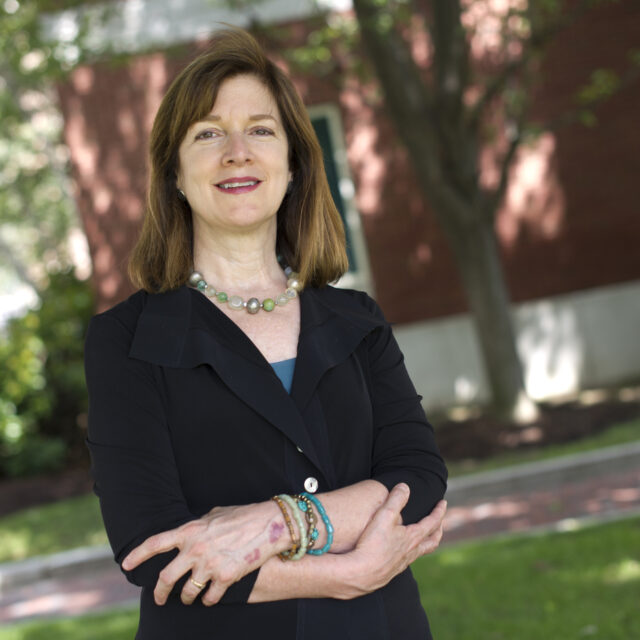For as long as she can remember, social justice and environmentalism have played major roles in Joan Fitzgerald’s life. In high school, she won a speech competition when she spoke about our collective responsibility to care for the earth.
Cut to years later, and that passion has remained consistent. In 2002, Fitzgerald co-authored a book called Economic Revitalization: Strategies and Cases for City and Suburb that raised the question “What would urban economic development look like if sustainability and equity, particularly racial equity, were key concerns?” The question continues to be incredibly important, but since then, she’s flipped her approach. Now, she wonders: “If sustainability is your first concern, how would you link it to economic development and racial justice?” This focus underpinned her next two books, Emerald Cities: Urban Sustainability and Economic Development and Greenovation: Urban Leadership on Climate Change (both with Oxford Univ. Press).
The intersection of those three concepts—economic development, sustainability, and equity—sum up the primary focus of Fitzegerald’s work and passion. She is a professor of public policy and urban affairs at the College of Social Sciences and Humanities.
“I knew I wanted to be in a field that allowed me to have real-world impact, and urban planning and policy was one of those fields,” she said.
After faculty appointments in Chicago and New York, she joined Northeastern University in 2000 and played a key role in developing the university’s urban affairs programs. Given the university’s immersive placement in the heart of Boston, Fitzgerald thinks the location serves as an immense benefit to students.
“It’s a real advantage for us. We have the opportunity, one, to introduce our students to many people in city government, in policy, in planning, to discuss the issues that they’re addressing, whether it’s housing, transportation, climate change,” she said. “And the other part of it, of course, is you can use the city as a living lab, and your students can engage in projects throughout the city, in the metropolitan area.”
But it’s not only urban affairs students that benefit from an education in planning and public policy. In their lifetime, many students may find themselves living in large cities, and an understanding of how they work can be vital.
“It is important to understand various aspects of the city and why they work or don’t work the way they do,” she said.
“For example, you’re taking the T, why is it so infrequent and why does it cost so much to understand the complexities of running an urban transit system? Why is it so expensive in Boston, what are the policies to reduce the cost of housing or to build more affordable housing? All these issues affect you on a day-to-day basis, and so to have an understanding of how cities work, and how much it costs to run them and so forth, I think is really important.”
Another important urban topic is climate change and the need to connect it to racial and social justice, which is the focus of Cities and the Struggle for Climate Justice, a new book she’s co-authoring. For the book, she’s interviewing people who have been engaged in the environmental justice movement and asking how conversations around environmentalism have changed in recent times. Fitzgerald says that since the murder of George Floyd in the summer of 2020 and the “exposition of how much harder COVID was hitting poor communities and communities of color,” conversations around urban issues have become more dynamic.
“Many of the problems we see in Black and other neighborhoods of color and low-income neighborhoods have their beginnings with redlining,” she said. “And so, in those neighborhoods, you just kept piling on the location of industrial facilities and the building of highways. What I think makes sense, and the case that I’m trying to make, is that we need to establish these areas as climate justice zones and prioritize them in our climate action.”
Fitzgerald teaches a variety of courses from City Sustainability and Climate Change, to the 21st Century City. If there’s one thing a student could take away from any of her courses, it would be “an understanding of how difficult it is in this current political environment to really make effective policy that addresses climate and racial equity or racial justice, and a desire and a passion for really wanting to do it anyway.”




